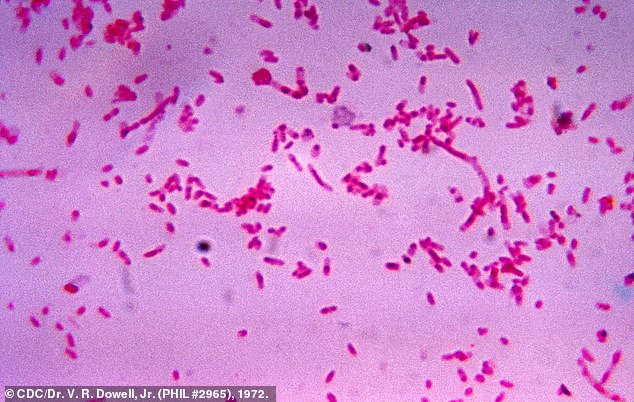Study shows common bacteria can ‘melt’ and destroy cancer with a 99 percent success rate




Scientists have discovered that a bacteria commonly found in the mouth can ‘melt down’ and destroy certain forms of cancer.
Researchers were ‘surprised’ that patients with head and neck cancer who had Fusobacterium in their tumors had ‘much better outcomes’.
The exact biological mechanisms behind this association are being further investigated by specialists.
In laboratory studies, the team from Guy’s and St Thomas’, King’s College London, added amounts of the bacteria to petri dishes containing cancer cells and left them for several days.
They found that the number of viable head and neck cancer cells decreased by 70 to 99 percent after infection with Fusobacterium.

A bacteria commonly found in the mouth appears to ‘melt down’ and destroy certain types of cancer, new research shows

Researchers were ‘surprised’ that patients with head and neck cancer who had Fusobacterium (seen) found in their tumors had ‘much better outcomes’

Pictured: Dr. Anjali Chander and Dr. Miguel Reis Ferreira, whose research made the “remarkable and very surprising” discovery
Further analysis of 155 patients with head and neck cancer found that those who had the bacteria in their tumors had a better chance of survival than those who did not have the bacteria in their tumors, with a 65 percent drop in risk of death.
Researchers hope the findings could help in the treatment of patients with head and neck cancers, including cancers of the mouth, throat, larynx, nose and sinuses.
According to experts, there has been little therapeutic progress in this area in the past 20 years. Hopefully, this discovery can lead to new treatments in the future.
“Essentially, we found that when you find these bacteria in head and neck cancers, the outcomes are much better,” said lead researcher Dr. Miguel Reis Ferreira.
‘We also discovered that this bacterium can kill cancer in cell cultures.
‘This research shows that these bacteria play a more complex role than previously known in their relationship to cancer: they essentially melt cancer cells in the head and neck.
‘This could mean that we can use these bacteria to better predict which patients are more likely to have good or worse outcomes.’
He added: ‘On that basis we could adjust the treatment, for example for patients with better outcomes, or more intensively for patients whose cancer is likely to come back.’
Dr Anjali Chander, senior clinical researcher at King’s College London and lead author, added: ‘Our findings are remarkable and very surprising.’
The team has published a paper on their findings in the journal Cancer Communications, describing how Fusobacterium is “toxic” to head and neck cancers and how its presence “may lead to a better prognosis.”
“Detectable Fusobacterium was associated with both better overall survival and better disease-specific survival,” the authors wrote.




